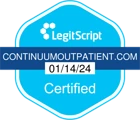Partial Hospitalization Program for Depression and Anxiety
What is a Partial Hospitalization Program for Depression and Anxiety?
Anyone who struggles with depression and/or anxiety knows how difficult it can be. Sometimes the dark cloud of depression can be so heavy that there seems to be no hope for sufferers and their loved ones. Similarly, symptoms of anxiety can leave a person debilitated and without a sense of autonomy over their own life and well-being.
A partial hospitalization program (PHP) for depression and anxiety offers a chance for hope and healing.
A partial hospitalization program for depression and anxiety is a type of outpatient mental health treatment program. It’s designed for people who need more intensive care than what’s often offered in traditional outpatient therapy, but who don’t need the 24-hour supervision of inpatient care.1

What Does Treatment Look Like in a Partial Hospitalization Program for Depression and Anxiety?
Goals of a Partial Hospitalization Program for Depression and Anxiety
- Reducing symptoms of depression and anxiety
- Improving general functioning
- Decreasing the need for hospitalization
Partial hospitalization programs are increasingly recognized as a vital component of the mental health treatment continuum. They offer a balance between intensive care and the flexibility to maintain certain aspects of daily life.
Primary Benefits of a Partial Hospitalization Program for Depression and Anxiety
Intensive Care with Flexibility
Structured Routine
Diverse Therapeutic Modalities
- Individual therapy
- Group therapy
- Family therapy
- Experiential therapies like art or music therapy
Skill Building
Medication Management
Peer Support
- Fostering a sense of understanding
- Reducing isolation
- Learning from the experiences of others
- Developing a shared sense of accountability
Transition and Continuity of Care
Family Involvement
Focus on Relapse Prevention
Therapeutic Modalities and Techniques Used in a Partial Hospitalization Program for Depression and Anxiety
Cognitive-Behavioral Therapy (CBT)
This is a widely used approach that focuses on identifying and changing negative thought patterns and behaviors that contribute to mental health challenges. CBT is evidence-based and has been shown to be effective in treating depression.2
Dialectical Behavior Therapy (DBT)
DBT was originally developed for borderline personality disorder. But, it’s been adapted for treating depression and anxiety, particularly in people who experience intense emotions.
- Mindfulness
- Emotion regulation
- Distress tolerance
- Interpersonal effectiveness
Interpersonal Therapy (IPT)
IPT focuses on the patient’s relationships and social interactions. It aims to improve communication skills and increase social support, which are critical in the treatment of depression and anxiety.3
Psychodynamic Therapy
Group Therapy
- Provides peer support
- Reduces isolation
- Allows people to learn from the experiences of others with similar challenges
Family Therapy
- Improve communication
- Resolve conflicts
- Create a supportive home environment
Medication Management
Psychiatrists or other medical professionals often oversee medication management. This can be a critical component of treatment for depression and anxiety. This includes prescribing medications, adjusting dosages, and monitoring side effects.4
Mindfulness and Stress Reduction Techniques
These techniques include practices like meditation, yoga, or breathing exercises. They’re aimed at reducing stress and improving mental clarity.
Experiential Therapies
Some programs may include art therapy, music therapy, or recreational therapy. They provide creative outlets for expression and emotional processing.
Educational Workshops
- Coping strategies
- Nutrition
- Sleep hygiene
- Wellness
Success Rates and Long-Term Outcomes of a Partial Hospitalization Program for Depression and Anxiety
- The severity of depression and/or anxiety
- Co-occurring disorders
- The patient’s engagement in the program
Long-Term Outcomes and Continuity of Care
General Consensus: PHP is Effective
The Role of Medication Assisted Treatment (MAT) in a Partial Hospitalization Program for Depression and Anxiety
When It’s Used
Professional Monitoring
Peer Support and Group Therapy in a Partial Hospitalization Program for Depression and Anxiety
Peer support and group therapy are integral components of a PHP for depression and anxiety. They offer unique benefits that enhance the recovery process for participants, such as:
Sense of Belonging
Empathy and Encouragement
Peers provide empathy and encouragement from a place of genuine understanding. This support can be a powerful source of motivation and hope during difficult times in the recovery process.
Learning Coping Strategies
Improving Social Skills
Group Therapy in a Partial Hospitalization Program for Depression and Anxiety
Diverse Perspectives
Skills Development
- Coping mechanisms
- Communication skills
- Mindfulness practices
Normalizing Experiences
Giving and Receiving Feedback
Group therapy provides an opportunity for giving and receiving feedback in a safe environment. This can promote self-reflection and deeper insights into one’s behavior and thought patterns.
Benefits of Pairing Peer Support and Group Therapy
- Reduce feelings of isolation
- Provide new insights and coping strategies
- Foster a sense of community among participants
Partial Hospitalization Programs and Co-Occurring Mental Health Disorders
Comprehensive Assessment
Integrated Treatment Planning
Multidisciplinary Team Approach
- Psychiatrists
- Psychologists
- Social workers
- Other therapists with expertise in various areas
Customized Therapeutic Modalities
A PHP uses a variety of therapeutic modalities that are effective in treating a range of mental health conditions. For example, cognitive-behavioral therapy can be effective for both depression and anxiety disorders.
In cases where specific comorbid conditions need specialized interventions (like substance use disorders), additional therapies like motivational interviewing or dialectical behavior therapy might be integrated.
Medication Management
Regular Review and Adjustment of Treatment Plans
Skill Building and Education
Family Involvement and Education
Involving family members in the treatment process can be especially beneficial in complex cases. Family therapy and education help family members understand the dynamics of co-occurring disorders and how to best support their loved one.
Preparation for Continued Care
Given the complexity of co-occurring conditions, a PHP often focuses on preparing patients for ongoing treatment and support after the program ends. This might include referrals to outpatient therapists, support groups, or other community resources.

Partial Hospitalization Program for Depression and Anxiety at Continuum
At Continuum Outpatient Center, our partial hospitalization program for depression and anxiety relief is uniquely tailored to address a range of needs. This includes those stemming from trauma and dual diagnoses.
We understand the complexity of mental health disorders and believe in a client-centered approach that prioritizes individual experiences and needs.
Our Program
Our program is grounded in evidence-based therapy, ensuring that every treatment plan is both scientifically supported and effective.
Recognizing the importance of MAT in managing certain aspects of mental health conditions, we incorporate this alongside our therapeutic modalities to offer comprehensive care.
Commitment to Holistic Care
We are committed to holistic wellness, acknowledging that true healing encompasses physical, emotional, and mental health.
At Continuum Outpatient Center, we’re not just treating symptoms; we’re nurturing general health and empowering clients on their journey to recovery.
Contact Continuum Outpatient Center Today
If you or a loved one are struggling with depression and/or anxiety, you don’t have to go through it alone. Reach out to us to learn more about our partial hospitalization program for depression and anxiety recovery. We’re here to help you heal.


